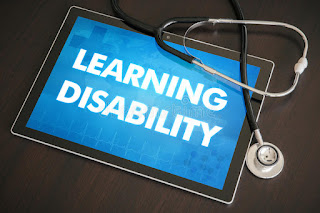HOW TO RAISE A CHILD WITH GOOD CHARACTER (PART 1)
Introduction
As a parent, you always want to raise your children to be the best possible version of themselves. You may want to raise a child with good manners, a kind heart, and the ability to make the right decisions. Whatever your personal parenting philosophy is,
the following ultimate goal is a child with good character.
1. Committed to Raising a Virtuous Child
"How important is it to you to raise a moral child?" This is an important question to ask, as research shows that parents who believe their children will grow up to be good people are often successful. And that's because they're committed to the endeavor. If you want to raise an ethical child, commit to raising one.
On a scale of 1 to 10, how important is it for your child to develop into a person of strong moral character?
2. Know Your Beliefs and Share Them
Before you can raise an ethical child, you also need to be clear about what you believe in. Take time to reflect on your values, then share them often by explaining why you feel the way you do. More than 400 virtues have been identified. Pick a few that make the most sense to you and your parenting partner, and commit to using them often.
Imagine it's been 30 years from now and your kids are grown. Now you are looking at your adult children. What personality traits do you hope they picked up in childhood?
3. Be a Strong Moral Example
Parents are their children's first and strongest moral teachers, so make sure that the ethical behaviors your children adopt from you are the ones you want them to imitate. Try to make your life a living example of good ethical behavior for your child.
Every day, ask yourself, "If my child only had to observe my behavior, what example would he follow?" The answer is often quite obvious.
4. Use Teachable Moments
The best teaching moments are not those that are planned, they happen unexpectedly. Look for ethical issues to resolve as they become reality. Take advantage of these opportunities as they help your child develop strong moral beliefs that will guide their behavior for the rest of their lives. After all, your kids will hear countless messages that go against your beliefs, so they must hear about your ethical standards. TV shows, movies, newspapers, and literature are filled with moral issues as well as everyday moments. You can use them to discuss your beliefs with your children, but only if you recognize your worth.What are some teachable moments I could use today to help my child understand and accept strong moral beliefs?
5. Use Discipline as a Moral Lesson
Nancy Eisenberg, the author of The Caring Child, says one of the best ways to build character is to emphasize the impact a child's behavior has on others ("Look, you made him cry." ") or highlight the victim. his feelings ("He feels bad now"). This enhances the moral development and pro-social behavior of the child and can be effective even with young children.
Try playing with young children about what flying can feel like, using one of your child's favorite toys. After "stealing" a toy, ask your child, "How would you feel if someone stole this toy from you?" Is that fair? Why not?"
If it were an older child, you might ask, "Would you want someone to steal from you?" or “Pretend you're their child's friend and you just found out that someone took their toy. How will you feel? For what? What would you say to the person taking the toy? »
Effective discipline ensures that the child not only realizes why their behavior is wrong but also knows what to do to correct it next time. Using the right types of questions helps children develop the ability to absorb other people's perspectives and understand the consequences of their behavior. So help each child think, "Is this the right thing to do? What should I do next time?" This way your child will learn from his mistakes and mature morally.
In Conclusion
Remember that our ultimate goal is to remove our children from our guidance and let them act on their own. Are your typical disciplinary actions ones that help your child understand more about their mistakes?
Don't forget to visit our main school website on : www.jacobsschools.com.ng for appetizing information, pictures, and the likes about Jacob's Schools.
Don't limit yourself to these tips alone. Visit our school blog to read more about other related posts at www.jacobsschlsblog.com.ng









Comments
Post a Comment